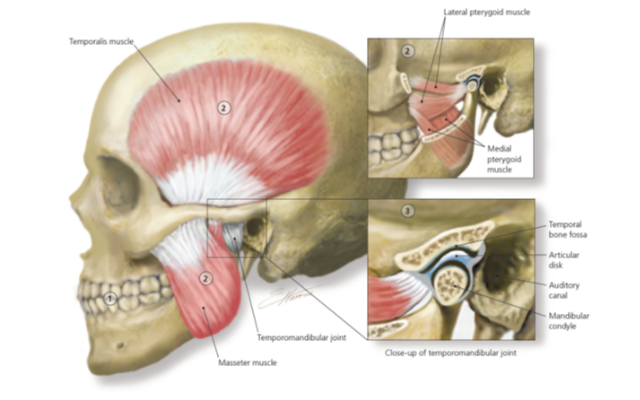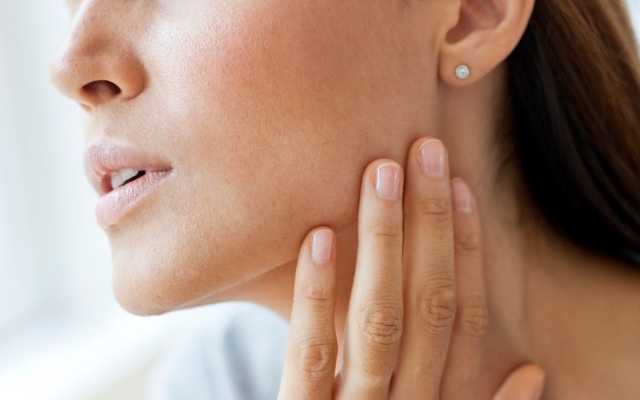News: Jaw pain or Temporomandibular Dysfunction (TMD)
By Dr David Cork, Osteopath
Temporomandibular Dysfunction (TMD) is an umbrella term used to describe pain and dysfunction of the temporomandibular joints (the joints between the jaw bones and the skull) and the muscles of mastication (the muscles that move the jaw). The two temporomandibular joints are located just in front of the ear and allow many movements of the jaw.
TMD is usually divided into two types, both of which may be improved with hands on treatment:
1) muscle related TMD
2) joint related TMD
Why is TMD important?
TMD can lead to difficulty carrying out basic activities such as eating and talking and therefore can lead to significant disability. TMD also has a strong link with neck pain and headaches which can cause difficulty concentrating, impair other cognitive activity and generally take the enjoyment out of basic social functions in life.
People with TMD often end up seeking excessive surgical, dental or pharmacological interventions for what may be more easily treated as a musculoskeletal disorder. Our practitioners are trained to assess and identify the cause of your jaw pain, or if it related to other issues like headaches and neck pain. By helping to reduce muscle tension and encouraging the TMD joints to move better, more invasive treatments may be avoided.
Causes and Common Risk factors of TMD
- Direct trauma to the head or jaw including whiplash injuries and direct blow/knock like when playing spot
- Dental work, where the Jaw is help open for long periods of time or in awkward positions
- Stress and mental health issues can leet to a build up of tension in the muscle an joint of the face, jaw and neck
- Grinding and clenching of your teeth during the day or at night
Need help with you jaw pain? Dont wait, get help now;

What are the symptoms of TMD?
- Pain in your jaw, teeth, face or neck when opening or closing your mouth or chewing foods
- Restrictions in movements of your jaw including locking, difficulty moving the jaw, uneven movements or incoordination.
- Pain felt around the muscles of the jaw or in and in front of the ear
- Pain when yawning, coughing, laughing
- Pain felt with pressure applied on or around the jaw region
- Popping, clicking or grinding sounds with movements of the jaw like opening and closing and chewing
How we can help with TMD
We have found the following in-clinic treatment techniques effecting in helping reduce/eliminate pain and manage TMD issues:
- Soft tissue massage to the muscles around the jaw that can include muscles outside of the mouth and inside the mouth
- Gentle mobilisation of the temporomandibular joints to improve jaw movement and reduce pain
- An individualised home exercise program including jaw stretches, jaw mobilisation, jaw control exercises, neck mobility and strength exercise
- Massage to the muscles of the neck, mobilisation and gentle manipulation of the joint in your neck (only if appropriate)
- Advice on changing eating habits in the short term e.g. softer foods or food in smaller pieces
- Avoidance of aggravating factors like gum chewing, wide opening of the jaw or clenching
- Referral for dental split to reduce grinding and clenching during sleep if required
What to expect at your appointment
Our trained Chiropractors and Osteopath will take a thorough history and examine your jaw to determine whether TMD is the cause of your discomfort. As part of the assessment your practitioner may:
- Listen to and feel your jaw when you open and close your mouth
- Observe the range of motion in your jaw
- Press on areas around your jaw to identify sites of pain or discomfort
There is no need to suffer with jaw pain and longer. Book yourself in to see one of our trained practitioners and start feeling better now.





